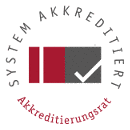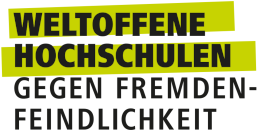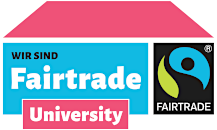Concept Note
How can entrenched binaries in education be challenged in order to foster a deeper sense of inclusion and advance social justice? How might Critical Global Citizenship and Decolonial Studies inspire and inform this reimagining?
The inherent potential for social injustice within binary distinctions, particularly in Special Needs Education, has been extensively theorized and critiqued (Campbell 2009), to the extent that some scholars now consider this critique overly accentuated. In practice, however, special and inclusive education still frequently relies on identifying, signifying and, as a consequence, labelling those considered particularly in need of support. Böhmer (2024) suggests that social practices of signification establish and sustain social structures, which are historically, politically, and culturally solidified through architectures of knowledge and "their shadow, ignorance" (p. 35). He argues that deconstruction is essential for dismantling (colonial) power dynamics and the affiliations tied to them. Shure (2021) further demonstrates that this shadow of ignorance, which obscures hegemonic meaning-making, has shown that the shadow of ignorance, the de-thematisation of hegemonic attributions of meaning, also affects teacher training institutions as "political sites [...] of social negotiation" (p.287), but at the same time can be made (more) fragile through critical questioning.
How can this critical questioning be cultivated?
The artist Maja Linke explores a new approach by merging the German words WIR ("we") and IHR ("you") into the neologism WIHR (p. 11). This term envisions a space of possibility that resists creating an "outside" and avoids finality in addressing the question of inclusivity. This idea resembles Anishinaabe knowledge, which, according to Morcom and Freeman (2018), includes the concept of „giinwi (1PL.INCL., ‚you and me/us together‘)“ (p. 815).
Yet, how relevant are ideas like that for global inclusive education?
In the face of growing yet often conflict-prone global interconnectedness, coupled with intensifying structural inequalities, oppression, and global injustice, inclusive education is challenged to face questions like how to foster a sense of unquestionable belonging to each individual in a way so that we all „can fully express our selfhood and our dignity is respected” (Steyn & Vanyoro 2023,2). This can’t simply mean to “”celebrate’ difference but […] to interrogate the material consequences of constructions of difference” (Steyn & Vanyoro 2023, 3). The approach of Critical Global Citizenship steps even further by putting questions such as: „How can we learn to learn from different ways of knowing in order to imagine the world differently?“ (Pashbi, Stein & Andreotti 2020,159). Therefore, it might be fruitful for inclusive education to engage in an exchange on decolonial understandings of Critical Global Citizenship in education (Waghid & Meda 2023; Steyn & Vanyoro 2023). In distinction from neoliberal and cosmopolitan approaches, scholars engaging in Critical Global Citizenship Education seek a “disruption or decolonizing of the mindset of individuals requires that they understand the historical roots that have formed their beliefs and sensibilities” (Waghid & Meda 2023, n.p.).
The conference aims to create a space of possibilities for disruption where scholars with different perspectives can meet and take part in constructive-critical discussions on how global perspectives on inclusive education can align with the aim of global social justice. We therefore cordially invite you to contribute your thoughts, ideas and research related.
gefördert durch DFG, Projektnr. 552518741
Anmeldung zur Veranstaltung erforderlich bis zum 15.09.25: https://phlb.de/beyond-binaries-2025






